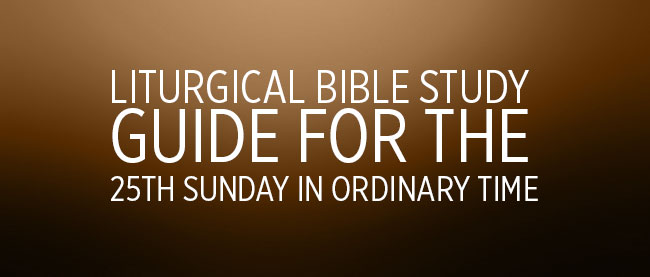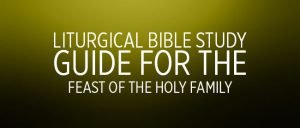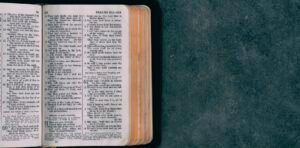1st Reading – Isaiah 55:6-9
We know very little about the details of Isaiah’s life. To distinguish him from other men of the same name, he was called “Isaiah, the son of Amos;” later “Isaiah the prophet.” According to Jewish tradition he was of royal stock. He was of the tribe of Judah and his home was in Jerusalem. All his discourses are addressed to the people, or to certain classes and individuals, or to the women of Jerusalem. He was married and had two sons. We know from Isaiah 8:3 that his wife was known as a prophetess.
Isaiah 40:1 through 55:13 has been called the Book of Comfort. The prophet places ancient traditions in a cosmic setting. The Mosaic covenant is expanded into a world covenant by mentioning the covenants with Noah and with Abraham and Sarah. The author sees the garden of paradise emerge before his eyes. The spirit of the liturgy breaks forth into new life through his hymns, laments, and proclamation of the word.
On the 18th Sunday in Ordinary Time in this cycle we heard the opening three verses of the conclusion to the Book of Comfort. Today we hear more of this opening.
2nd Reading – Philippians 1:20c-24, 27a
Philippi is a city north of the Aegean Sea named after Philip of Macedon, the father of Alexander the Great. Saint Paul founded the first Christian church in Europe at Philippi around the year 51, during his second missionary journey. Saint Paul lived in Philippi for some years and had special affection for these people, which they reciprocated. Acts 16:11-40 tells us that he suffered imprisonment and the lash on their account. The Philippians, for their part, sent Epaphroditus to Rome to look after Paul when he was imprisoned there. Epaphroditus, who was a great help at first, soon became seriously ill. Once he was on the way to recovery, Saint Paul sent him back home with a letter. This letter was written by Paul during his imprisonment in A.D. 61-63 and is addressed to the Philippians. In this letter Paul simply expresses his gratitude to the Father for all consolation, and to the Philippians for the kindness and attention they showed him and for never being a source of worry to him but rather of consolation.
In our reading today we hear Saint Paul describing his own situation.
Gospel – Matthew 20:1-16
Having heard for the past two weeks of Christian discipline and forgiveness as we study Matthew’s gospel, we skip over Jesus’ teaching on the indissolubility of marriage (which is heard in the Common of Virgins Mass), the Little Children and Jesus, and the story of the Rich Young Man. Before moving into today’s reading, let’s look for a minute at the teaching on divorce (Matthew 19:1-12):





